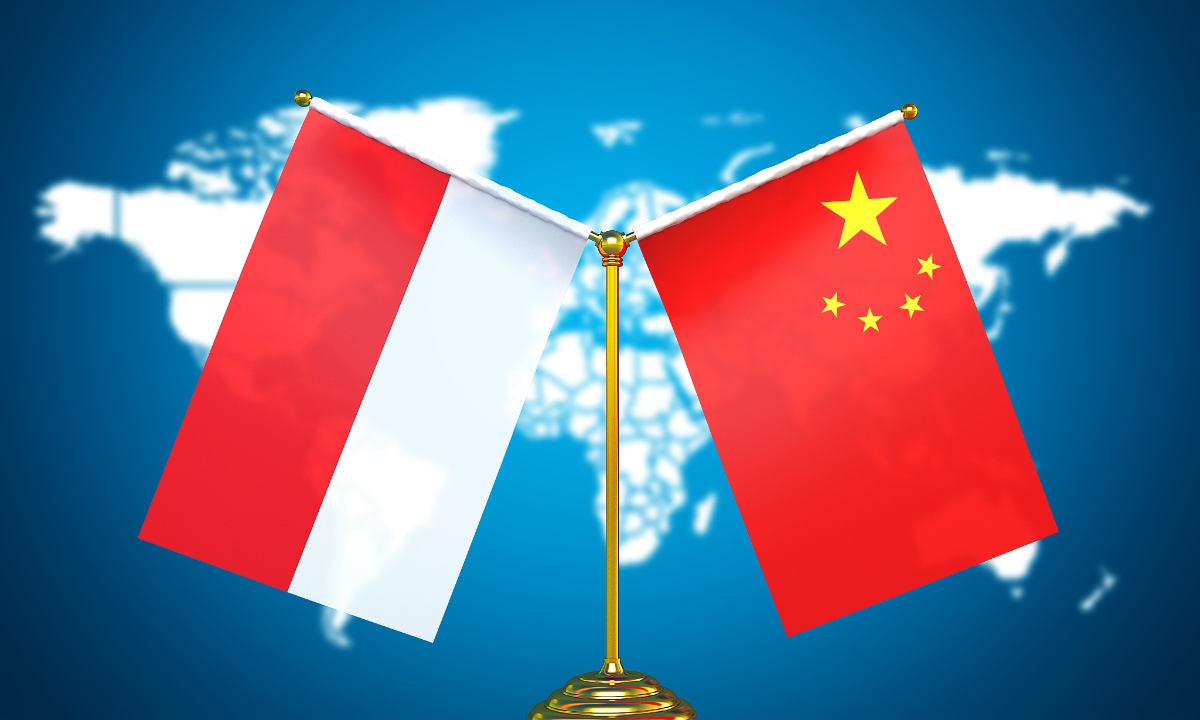Jakarta under Prabowo expected to maintain neutrality amid geopolitical challenges

China Indonesia Photo:VCG
On Sunday, Indonesia's Prabowo Subianto officially assumed office as president. Chinese President Xi Jinping sent a congratulatory message to Prabowo on assuming the presidency of Indonesia. Noting that China and Indonesia are traditionally friendly neighbors, Xi said that the comprehensive strategic partnership between the two countries has been growing steadily, entering a new era of building a community with a shared future.
Prior to his inauguration, Prabowo visited Beijing this spring on his first foreign trip since his election victory in February. These interactions have sent a positive signal to the international community that China remains an essential partner for Indonesia's new administration.
During his visit to China, Prabowo expressed his appreciation for China's support and reaffirmed that China is a "strong partner" of Indonesia. He said that he supports the development of a closer relationship with China and will continue the country's friendly policy toward China. Under Prabowo's leadership, the relationship between Indonesia and China is expected to be further strengthened and expanded.
In the dynamic geopolitical landscape of Southeast Asia, Indonesia faces significant challenges. Prabowo's approach to defense and foreign policy emphasizes balancing enhanced military capabilities with a neutral and pragmatic stance in the face of global geopolitical challenges. This strategy aims to safeguard national security while navigating the complexities of global political dynamics effectively.
In fact, apart from China, ahead of his inauguration, Prabowo also visited Russia, Japan, France, Serbia and Turkey. This signals the new administration's intent to strengthen its strategic international partnerships. It also suggests a potential shift in Indonesia's foreign policy orientation, moving away from leaning toward the West and instead gravitating toward the East, particularly toward nations that do not always align with the US and other Western powers.
Furthermore, Prabowo seems eager to expand economic cooperation with countries outside the Western sphere, creating more diverse partnerships. Such a strategy positions Indonesia as a country seeking closer partnerships with Eastern nations. It also reflects an effort to explore new economic cooperation opportunities beyond the Western-dominated global trade framework. Such a strategy shows that the country chooses partners based on strategic advantages and pragmatism.
Meanwhile, Jakarta under Prabowo is expected to continue to advocate for the "good neighbor" policy rooted in the principle of non-intervention. This remains consistent with Indonesia's long-standing doctrine of active non-alignment, a policy maintained since the Cold War era. This approach allows Indonesia to remain neutral amid rising geopolitical tensions, especially in the complex Southeast Asian region.
However, neutrality does not equate to passivity. In practice, this dual approach of strengthening military capabilities while fostering diplomatic relations aligns with the concept of "strategic hedging."
Prabowo acknowledges the importance of maintaining strategic relationships with global powers such as China, Russia and the US. Military exercises between Indonesia and the US have been on an upswing. These are unlikely to change under Prabowo. Indonesia's efforts to build relationships with both Eastern and Western powers exemplify this hedging strategy, aiming to position the country as a flexible and neutral player in global geopolitics and ensure that the country can maintain its sovereignty and advance its national interests while engaging with an increasingly multipolar world.
The author is an associate professor of international relations at President University in Indonesia. opinion@globaltimes.com.cn



